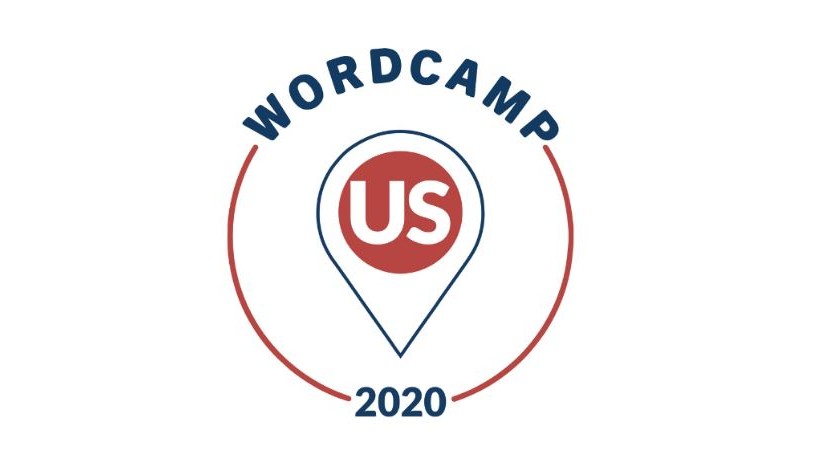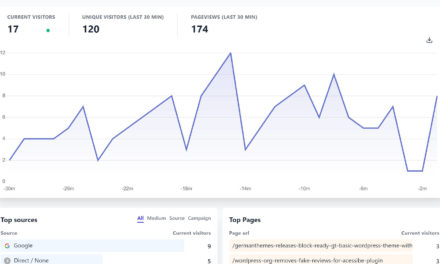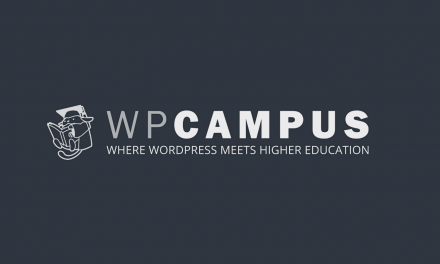WordCamp US 2020, which was originally scheduled for October 27-29, was officially canceled today. In April, organizers transitioned to planning for it to be held as a virtual event, but the tenuous situation with the pandemic in the United States and the stress on the event’s large crew of volunteers has precipitated a full cancellation. The decision was announced on the WCUS website:
It is with heavy hearts that we have made the decision to cancel this year’s WordCamp US event. In light of the continued pandemic, online event fatigue for attendees, organizers, and volunteers, and the desire for WordCamp experiences to be traditional WordCamp experiences, we have made the difficult decision to stop this year’s planning, and cancel WordCamp US 2020.
After the pandemic started forcing WordCamps and meetups to go online, many community team members seemed to put on a brave face about adapting WordCamps to virtual events, but WCUS organizers are publicly recognizing the reality of online event fatigue.
Angela Jin, one of the lead organizers, said her team discussed how recent online WordCamps have struggled to meet traditional goals of connecting people and encouraging contribution. In light of attendees’ increasing online conference fatigue, WCUS organizers considered the cost of volunteers’ time.
“The Lead Organizers also took into consideration how many volunteers we have on this team, and how much time we were asking them to invest in an event that didn’t seem to be able to offer the same level of joy or satisfaction that an in-person WordCamp would,“ Jin said.
“As you might imagine, this was a very upsetting realization, but the whole team spent time discussing together, and we believe that we made the right decision.”
The U.S. passed more than 150,000 Coronavirus deaths this week and outbreaks are worsening right as schools are supposed to be opening. As COVID-19 cases continue to rise sharply in many states, renewed lockdowns and political tensions have put people on edge. Every day brings a fresh injection of bad news and the country is deeply mired in division ahead of one of the most contentious presidential elections in history. Late October is not an ideal time to try to host WordPress’ flagship WordCamp online.
One WCUS organizer, who requested to remain anonymous, said he was angry that he invested more than 100 hours across various organizing teams and wished it had come sooner. He described how multiple personal stressors were impacting daily life and draining the team’s energy.
“I feel everyone is tired and worn out,” he said. “They are stressed – we are all losing friends [to COVID-19]. Everyone is fighting about politics and the work suffered.”
He reported that many organizers were not doing their parts and all tasks were delayed. Although he experienced a high level of frustration with how it was handled, he was relieved when the decision was announced. Many of the event’s 50 organizers are also involved in coordinating local meetups and leading other WordCamps, and their energies are spread thin.
“This will pave the way for something new and better,” he said. “We have to evolve as a community and one more zoom meeting is not it.”
Not all organizers considered the time invested as a loss. Cate DeRosia, who has also helped organize WordCamp Grand Rapids in the past, said the lead WCUS organizers consulted with the entire time through a multi-step process and gave opportunities for their opinions to be heard.
“It’s easy to imagine that as an organizer I’d be disappointed by this decision, but that couldn’t be further from the truth,” Cate DeRosia said. “None of this is what I’d hoped for, but the time I’ve invested in WCUS has helped me grow relationships and learn new skills that ultimately help me further my career goals and make me a better volunteer in the future.
“COVID-19 has been unpredictable and made everything about life harder. By making this difficult decision now, we all get back a little of our time to invest in other areas instead of using up more energy and risking volunteer burnout for an event that ran the risk of getting lost amid other online events.”
State of the Word May be Hosted as a Separate, Focused Event
WCUS is encouraging speakers to apply again next year. Although all regular sessions on the program were canceled, some organizers will be shifting their focus to hosting a 24-hour contributor day along with producing some workshops and youth programming content.
Matt Mullenweg’s annual State of the Word address is also expected to happen but will likely take a different format this year.
“Discussions about the State of the Word are still active; our understanding is that it will still happen, but possibly not in association with any other event,” Jin said.
“I’m really excited about the potential for lots of smaller, focused, and educational ways for the community to connect online this year,” Matt Mullenweg said. “For the State of the Word I don’t have a plan yet, I think there’s less value to us watching the same thing at the same time if we can’t hang out afterward, but it still would be fun to celebrate the great progress we’ve been making with some sort of video. Stay tuned November-ish.”
Cancellation costs for WCUS are still being finalized. Prior to making it a virtual event, the original budget was close to $1 million, with the largest costs being the venue and catering. Jin said the team will publish a full accounting of expenses on the Community Team blog or the event site after the last round of discussions with vendors are complete.
It’s too soon to know if the WordCamp will be an in-person event in 2021. When asked if they will be hosting in St. Louis again, Jin said that any decisions regarding WCUS 2021 are paused for now.
“The WCUS team did invest a lot of time and energy into this event, but in a year when it is incredibly hard to plan anything, we did the best we could and adapted quickly,” she said. “I’m sad, of course, as I miss seeing everyone at WordCamps, but even if it was time and energy invested in something that didn’t happen, I spent time doing it with brilliant people who care just as much about WordPress as I do. It’s been an immensely challenging year, and I’m humbled to have been a part of this team, which has consistently supported each other and grown together in the face of adversity.”











